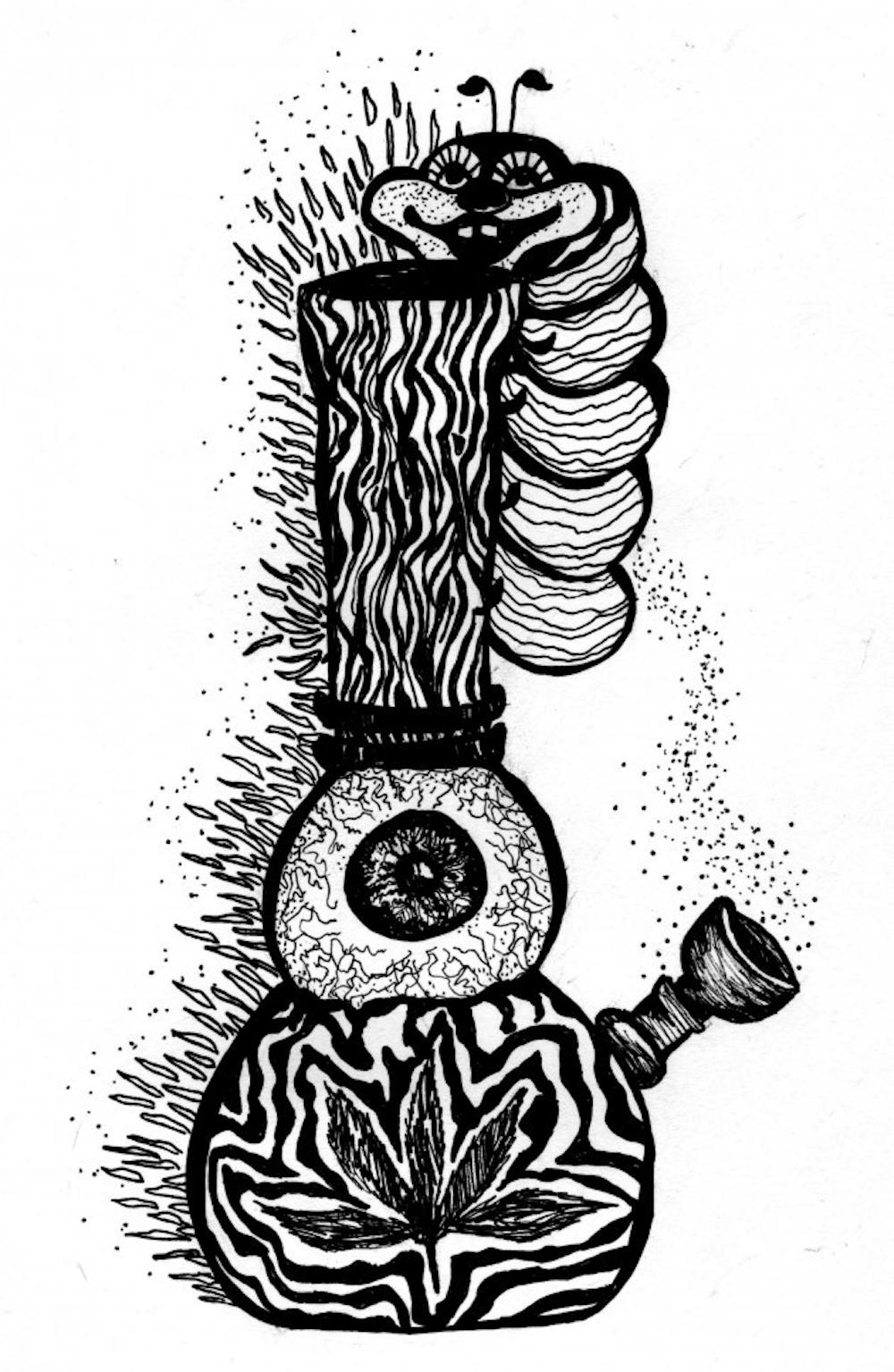Eggs, brownie-mix powder, milk, vanilla extract and marijuana: The ingredients that sent eight students to the hospital Feb. 16 and 17.
Some of the hospitalized students smoked weed, and others ingested the drug in a brownie mix. Due to the students' symptoms, University Police (UPD) believes they could have been using laced marijuana.
In 2013, 14 percent of UB students responded "yes" to using marijuana within the last 30 days, according to UB's National College Health Assessment. That's 3 percent below the national average.
"Marijuana is no bigger a problem on campus than alcohol is," said UPD Chief Gerald Schoenle.
Underage possession and consumption of alcohol is the most frequently cited offense in the dorms. But in fall 2013, Campus Living documented 119 incidents involving marijuana. That's almost double what was recorded in 2009, according to David Wright, the judicial coordinator for Campus Living.
And although the most commonly used drugs on campus are "stimulants and pain medication," according to Marla McBride, the assistant director of health promotion and harm reduction at Student Health & Wellness, frequent weed users are at UB. Marijuana is the third-most-used recreational drug in the country, behind alcohol and cigarettes, according to usa.gov. And the mid-February scare has left some of the campus discussing the implications of marijuana use.
The question of laced weed
It is still under investigation whether the marijuana the students ingested was laced, according to Schoenle.The students felt dizzy and nauseous, had trouble breathing and felt general disorientation.
The possibility of ingesting synthetic marijuana doesn't deter some regular users from continuing their smoking habits.
Austin Meyer*, a sophomore civil engineering student, admitted to smoking weed often and said laced weed is uncommon.
"Your dealer wants to make money," Meyer said. "Why would the dealer sell laced weed if they want to get their customers back on a regular basis? It just doesn't make sense. That's why I don't think it's a common occurrence."
Despite the questionable regularity of finding laced weed, it is sometimes difficult to tell the difference. For the non-expert, the difference between laced weed and non-laced weed is difficult to perceive. Schoenle said it's "nearly impossible."
Mark Walker*, a sophomore electrical engineering major, used to smoke weed every day - he said he never encountered any laced version of the drug.
"It might happen once and a while," said Ethan Deberry*, a junior exercise science major. "I think it is very rare."
Weed in popular culture
Meyer believes weed is popular is because of the drug's exposure in popular media, movies and music.
"Popular culture praises it," he said. "You see movies and music about it. Celebrities admit to smoking it. None of them think it's a problem, and everyone talks about how great it is."
Student users also said the popularity of the drug comes from its easy accessibility and its affordability compared to other drugs. It also leaves some users with a "euphoric" feeling.
"Weed is so popular because of the way it makes people feel," Deberry said. "People use it as an escape. If I had a bad day, I can smoke weed and feel better. It is like a beer after work."
Many students' opinions of the drug have changed since their first time using it.
At 12 years old, Walker had his first experience with weed. He used a soda can inside a Porta Potty. He became a regular smoker until he was 16.
Judith Guerrera*, a sophomore international studies major, admitted to smoking weed when she was younger, but she quit because she felt she could be more productive.
"Weed makes you lazy and unmotivated," she said. "That's bad, sometimes. But I felt like I could be doing more productive things other than smoking weed," she said.
The ongoing debate
Marijuana has been making headlines following Colorado and Washington legalizing its recreational use.
Guerrera believes marijuana should be legal because many other drugs - similar to and even more dangerous than marijuana - are already legal, she said, referring to tobacco and alcohol.
Walker considered the economics behind what legalization would mean.
"Weed isn't the worst thing you can smoke," Walker said. "Plus, the amount of money wasted on law enforcement trying to stop weed users is incredible. If they stopped fighting it, and started taxing the sale of marijuana, the profit would be in the hundreds of millions."
Walker believes that weed isn't "bad" for its users.
"If it takes up your lifestyle, and all you want to do is smoke weed, then it's a problem," Walker said. "If you can handle it and still are productive, then it is fine."
McBride, however, warns against the use of marijuana.
"Marijuana can lead to both legal problems as well as memory and concentration issues," she said.
Wright said some students use marijuana to deal with stress, anxiety over grades or other personal issues.
"[Marijuana] continues to be an emerging issue that Campus Living believes can have a negative impact on residents' success in meeting their personal, academic and professional goals," Wright said.
For Deberry, however, the overall problem cannot be generalized.
"It's based on the individual," Deberry said. "If someone takes it too far, then they will. Cigarettes are one of the leading causes of death in the U.S. You are not going to stop someone from doing something they decide to do, legal or not."
*The Spectrum has changed these sources' names to protect their identity.
email: features@ubspectrum.com





